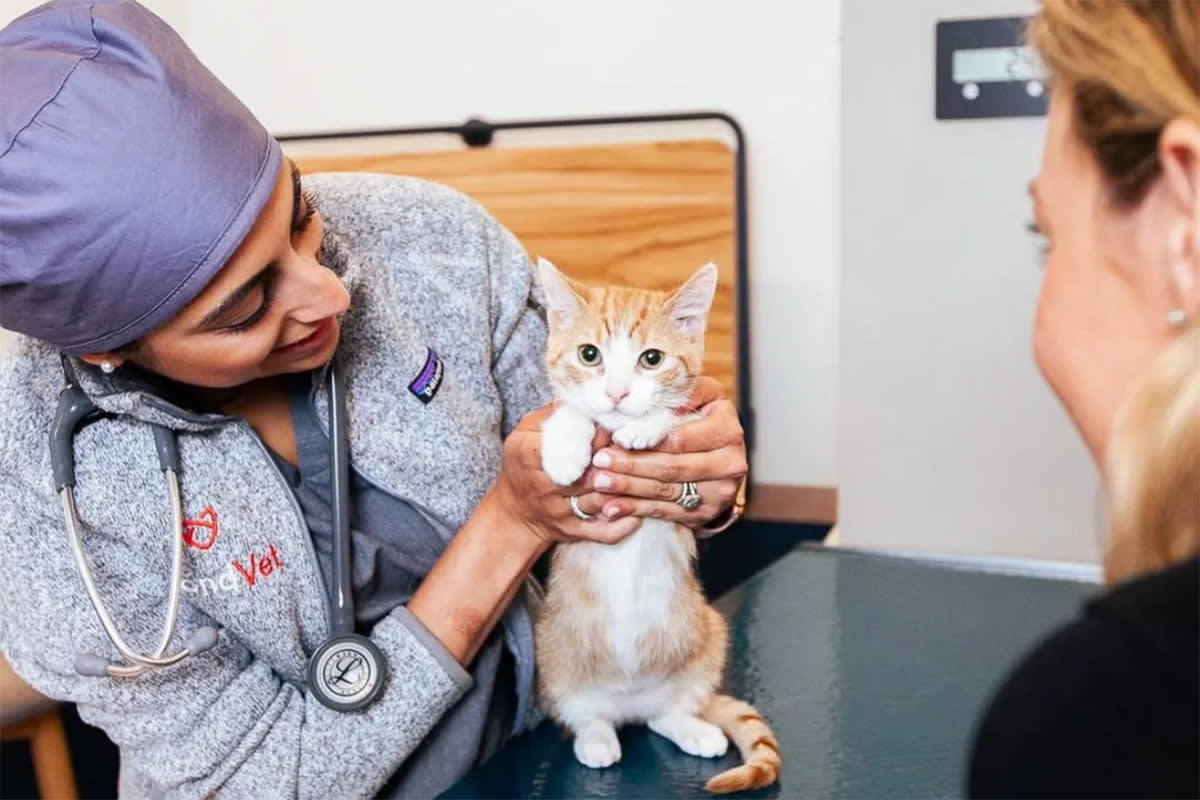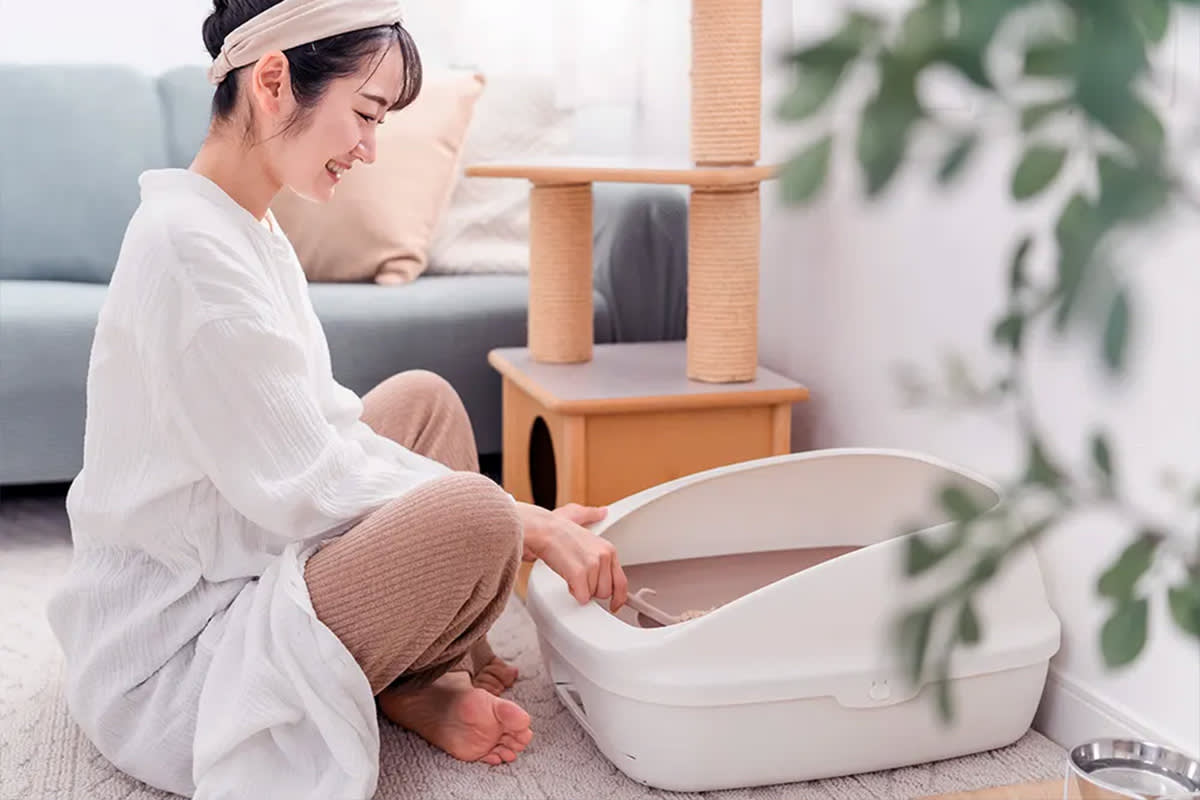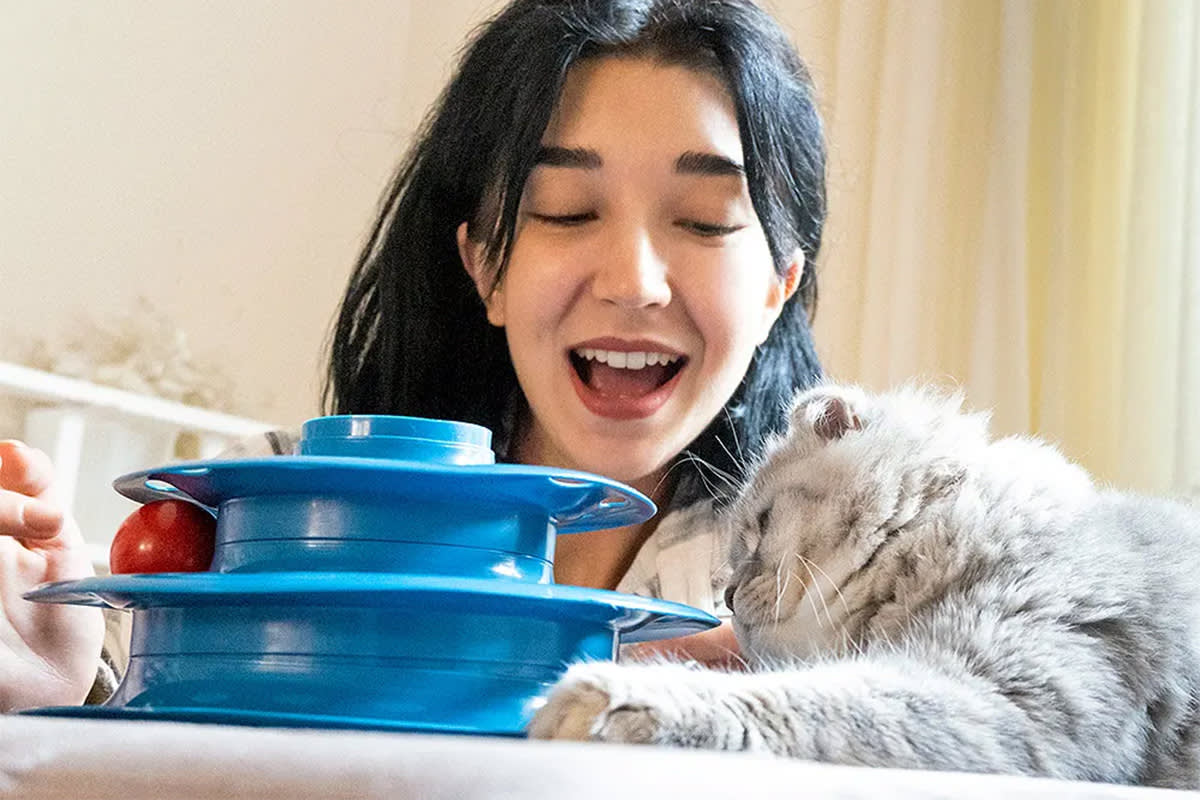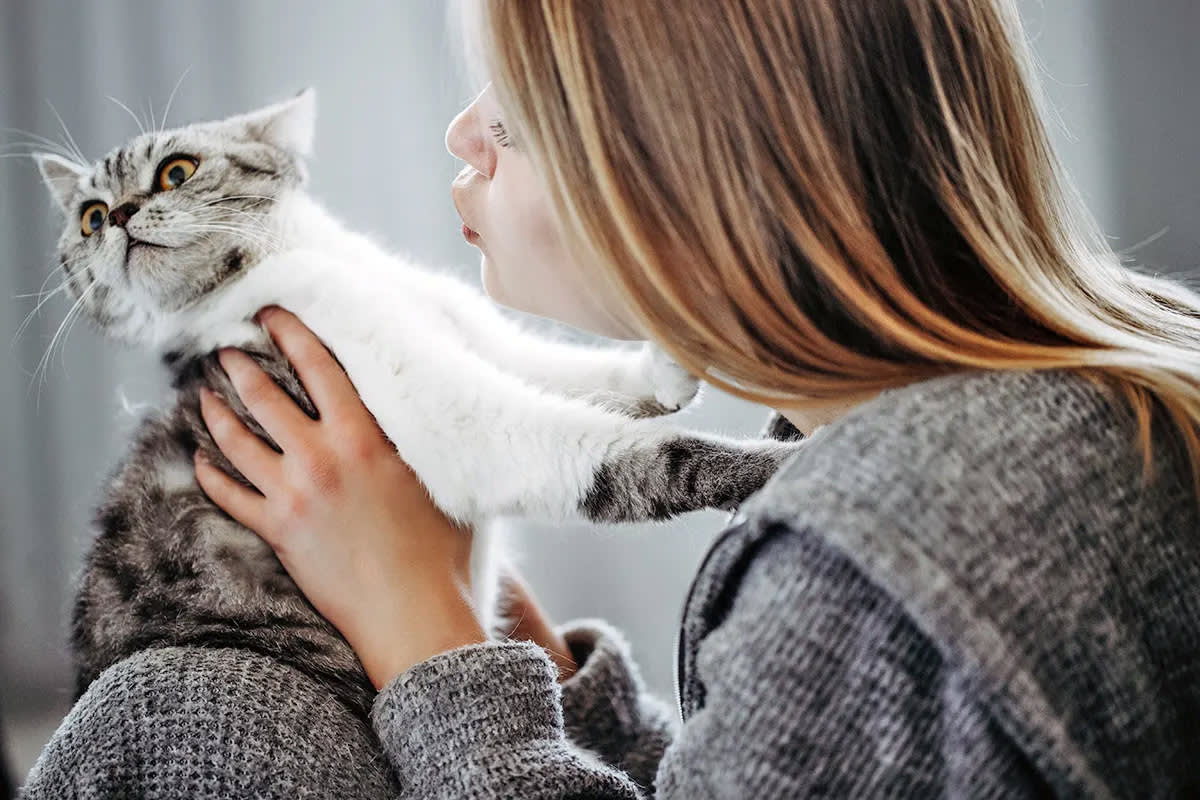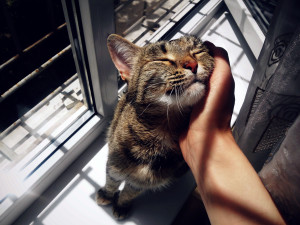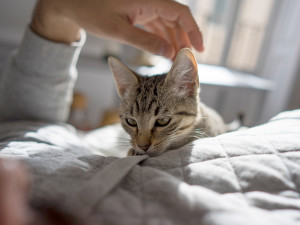8 Things Your Cat Wishes They Could Ask You For
Their demands are actually quite reasonable (if you ask them, anyway).

Share Article
Wouldn’t it be great if your cat could talk? I often imagine what my three might say to me, if they suddenly developed the ability to speak. Would my older one give me an earful about all the things her younger brothers do to annoy heropens in new tab? Would my biggest food-hog explain why he meows like he’s been starved for a week, when he just finished his breakfast an hour ago? On second thought, maybe I don’t want to know — especially if they’re judging me (they are, if their stink faces are any indication).
I asked the experts — two cat behaviorists and a veterinarian — what our cats wish they could ask us for, if only we had ears to understand what they were saying.
Yearly checkups
OK, so maybe your cat wouldn’t actually ask to go to the veterinarian — but they would if they knew what was good for them. Dr. Julie Hunt,opens in new tab veterinary consultant for Embrace Pet Insuranceopens in new tab, says that even if your cat is strictly an indoor cat, you still need to schedule an annual vet visit.
“These examinations help to pick up on important issues, including dental disease or obesity, that can be treated or corrected before becoming a major problem.” She also recommends that all senior catsopens in new tab get bloodwork done once a year. “Cats hide illness very well for as long as they can,” Hunt says. “That means owners and veterinarians don’t have the opportunity to treat early to middle stages of a disease. Annual blood work helps to catch these illnesses earlier.”

A predictable routine
“Cats are both predators and prey, and as such, they can sometimes be intrinsically fearful,” says cat behaviorist Stephen Quandt. “Noises, change, and strangers can be fear-inducing.”
Travel can be upsetting to your cat, as well. “Some cats get motion sickness, and even if they don’t, travel is often associated with unpleasant things like going to the room with people in white coats who poke and prod them,” Quandt says. “Carriers! Oh, no! ‘The Terror of the Moving Box!’”
More frequent scooping
“Litter boxes should typically be scooped daily; twice daily is even better,” Quandt says. “Imagine there was someone in your home who didn’t flush. Annoying. Enough said.” And speaking of litter boxes, your cat might also ask you to stop trying new kinds of kitty litter.
“Switching your cat’s litter, especially if you go from one style, like unscented clay, to something with an odd smell and texture like a pine litter [can be annoying to your cat],” Quandt says. The same goes for changing your cat’s brand or flavor of food: “My Jenny is so particular that even the slightest deviation in how I present her meal can result in a strike: ‘Oh waiter, didn’t you get the memo? Breakfast is supposed to be heated to 100 degrees Fahrenheit.’”
A gentler touch
If your cat does tolerate affection (and let’s be real, they’re probably tolerating it, not reveling in it), go easy with the love. Quandt says cats would ask you not to “overhandle” them, which might mean touching their tails or bellies, but could apply to any body part that your cat would rather you not touch.
“It can be anywhere,” he explains. “And then there’s something I call ‘corporal squeezing'. People often like to hold and squeeze their cat, and not all cats appreciate this type of forced attention.” Quandt also warns against petting against the direction of their fur — “this is Cat 101” — and kissing your cat on the lips. “Wait, you don’t do this?!”
A safe space
“Cats need protection from danger,” Dr. Hunt says. And if, like me, you’re thinking that your pampered indoor kitty is perfectly safe, think again. “Danger can take many forms,” Dr. Hunt says, explaining that while outdoor cats are at risk of getting lost, being hit by a car, ingesting toxins, or being attacked by a dog or other predator, indoor cats also face their fair share of threats.
These include toxic houseplants, medications, strings, and other pets in the household — including their cat siblings. “One cat may stand in a doorway, blocking the access of another cat to reach resources, including food, water, the litter box, and preferred sleeping or hiding locations.” To ward off potential sibling squabbles, she suggests setting up multiple food and water stations, litter boxes, and cozy spots for cat naps and alone time.
More ways to play
Dr. Hunt says that if cats could talk, they’d ask for things that make life more fun. Soft toys, catnip toys, wand toys, and automatically activated laser light toys that keep them from getting bored when you’re not around to play are a great place to start.
But toys aren’t the only things that will keep your cat entertained: Dr. Hunt suggests “catifying” your house by adding window seats and sleeping perches that are in the sun at various times of the day, shelves in high places (both for sleeping and traversing the house), and scratching posts in open areas, not hidden away. “They might also ask for a “catio,” or a cat patio, that would allow them access to the outdoors in a protected way,” she says.
To be put down
No, not like that. Some cats literally want to keep their four paws on the floor, and wish you would stop scooping them up, Quandt says. So, pay attention to how your cat reacts when you carry them around — no matter how much you love holding their little bodies close to yours. “
Some cats just hate [being picked up.] It goes against their evolutionary tendencies against levitation and flight!” Even when they’re safely on the ground, too much love can be, well, too much, Quandt says. “For some cats, the act of petting can be bothersome. That’s usually described as a cat who overstimulates or has petting-induced aggression. These cats are best appreciated with one’s eyes — or with care!”
A little respect
Kate Luse, certified cat behavior consultant at Meowzopens in new tab, says that if cats could speak, the number-one thing they'd ask of us is to respect their personal boundaries. “Cats are very sensitive to touch; a little touching goes a long way.” She notes that when cats greet each other, they might gently touch noses and rub cheeks.
“If they wanted a longer interaction, they might move on to briefly rub flanks, and that would be it. The entire exchange would take just a few seconds.” Warning signs that your cat has had enough include a swishing tail, tense muscles, rippling under the skin, ears swiveling sideways or back, or whipping their head around to the hand that's petting them.”
“Cats can't speak, but they can and do communicate with us,” Luse says. “And what they're often saying is, ‘I love you and enjoy your company, but I really can't handle being petted and touched so much. I know I'm beautiful and look all cuddly, but please respect my personal boundaries. When you do, that allows me to be my most affectionate self.’”
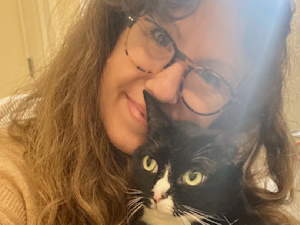
Elizabeth Laura Nelson
Elizabeth Laura Nelson is a writer and editor based in Brooklyn, New York, whose work has appeared in The New York Times, Jenny, Best Life, YourTango, Elite Daily, and more. She focuses her work on relationships, health and wellness, midlife, and lifestyle. As a child, Elizabeth was scared of cats (claws and teeth, yikes) but she has since gotten over her fear and now shares her home with three sweet and gentle feline companions who make life better (and cuddlier) every day.
Related articles
![Cat being happily pet in the sunshine of a window]()
How to Pet a Cat (Without a Scratch)
There is a right and wrong way.
![kitten sleeping on top of person]()
Why Does Your Cat Sleep on You? 7 Reasons and What It Means
Not into cuddling? Too bad—they’re spending the night.
Does Your Cat Love You? How to Interpret Bonding Behavior
They tell you in their own way.
Why Does Your Cat Bring You Toys?
Uh, thanks?
Why Is My Cat Suddenly Clingy?
They’re never far away, but you’d like a little distance.
![Cat grabbing onto ledge of table and looking to the left]()
Why Does My Cat Follow Me Everywhere?
Yes, they are right behind you.

